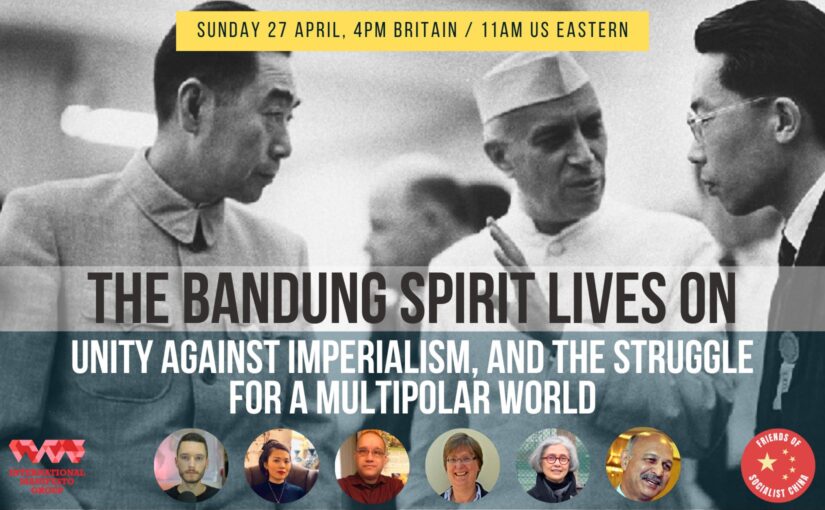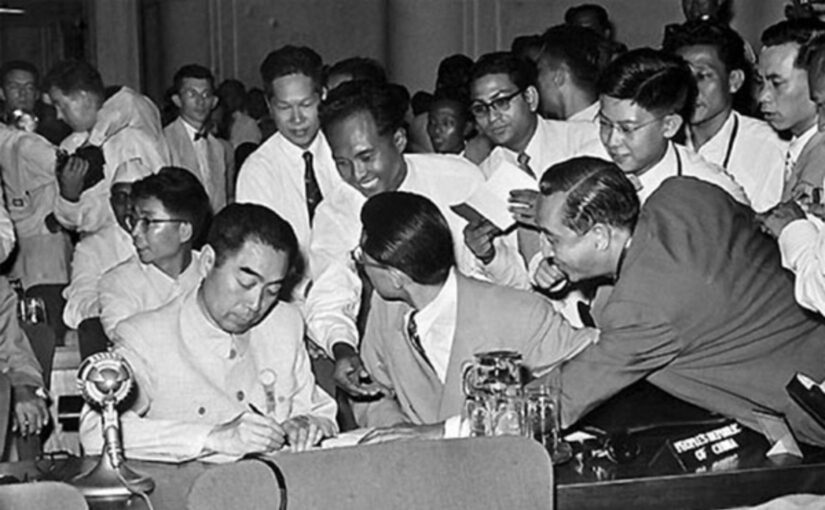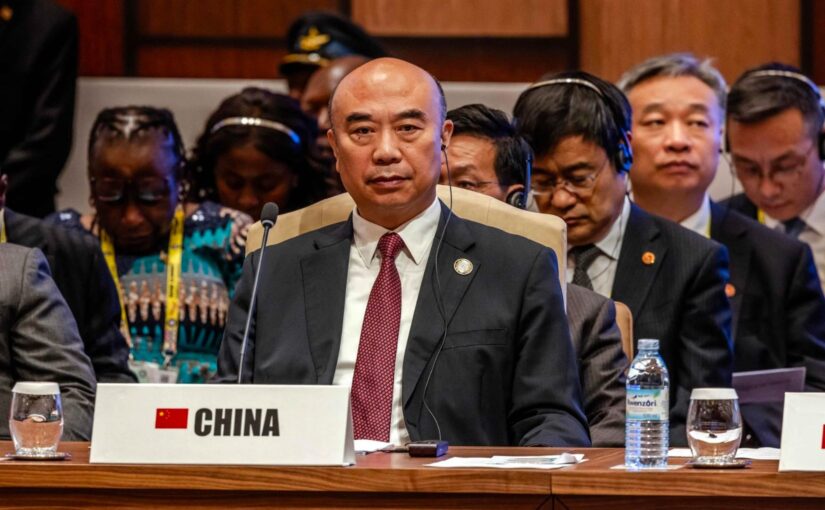The Ugandan capital Kampala hosted the 19th summit meeting of the Non-Aligned Movement (NAM), January 19-20. Chinese President Xi Jinping’s special representative Liu Guozhong attended and delivered a speech, highlighting the movement’s important role in promoting the cause of world peace and human progress and noting its birth, “at the climax of the national liberation movements in Asia, Africa, and Latin America.” Liu is also a member of the Political Bureau of the Communist Party of China Central Committee and a Vice Premier of the State Council.
The NAM should continue to uphold independence and oppose power politics, seek common ground while shelving differences, promote peaceful coexistence, seek strength through unity, strive for common development, and advocate equality, fairness and justice, Liu added.
The NAM Summit was followed on January 21 with the third South Summit, the highest decision-making body of the Group of 77 (G77), which now groups 135 developing countries.
Speaking there, Liu said that this year marks the 60th anniversary of the founding of the Group of 77, and over the past six decades, the Global South has followed the right path of equality, mutual trust, mutual benefit, solidarity, and mutual assistance.
Independence is the defining political feature of the Global South, seeking strength through unity is the glorious tradition of the Global South, development and revitalisation are the historical mission of the Global South, and fairness and justice are the common propositions of the Global South, he noted.
As a developing country and a member of the Global South, China has always shared a common destiny with other developing countries and will continue to take South-South cooperation as a priority in its foreign cooperation and contribute to the common development of developing countries in the Global South.
On January 21, Liu had a meeting with Ugandan President Yoweri Museveni, who has also assumed the rotating chair of the NAM and G77.
Museveni asked Liu to convey his sincere greetings to President Xi. He welcomed the vice premier and his delegation to attend the two summits and thanked China for its significant contribution to the success of the meetings.
From joining hands to oppose colonialism and hegemonism and strive for national liberation, to strengthening unity and cooperation and jointly promoting development and revitalisation, the destiny of the African and Chinese people has always been closely linked, Museveni stressed.
The Hong Kong newspaper South China Morning Post further reported Museveni as telling Liu: “We have been together in the anti-colonial struggle. China supported us when we were fighting for independence. It also supported the freedom fighting groups in Southern Africa – Mozambique, Zimbabwe and South Africa.
“Since then, China has grown economically [and] has helped Africa even more. We are therefore very happy with China.”
Liu responded that China was still a very poor country in 1949 when the People’s Republic was founded, “but the Chinese leaders made a very important decision” to develop relations with Africa through “supporting African people in fighting for national independence, liberation and their efforts to fight imperialism.”
In a meeting with another high-level Chinese delegation last November, the Ugandan presidential website quoted Museveni as saying that: “Ever since 1949, when the Communist Party took power in China, China has been on the side of Africa. At that time, Chinese leaders like Mao Zedong supported our struggle against colonialism. Then, after independence, even when China was not so prosperous, they extended support to Africa. I remember China building the Tanzania-Zambia railway after independence, and that was to help landlocked Zambia against the white supremacists in Southern Africa.”
Prior to visiting Uganda, Liu had visited Algeria and Cameroon.
The Kampala NAM Summit saw the admission to full membership of South Sudan, the first expansion in 13 years, meaning that the body now has 121 member states – 54 from Africa, 26 from the Americas, 36 from Asia, 3 from Oceania and 2 from Europe. In addition, there are 19 observer countries, including China, and 11 observer organisations, including liberation movements from the US colony Puerto Rico and Kanaky, the French colony known as New Caledonia in the South Pacific.
The following articles were originally published by the Xinhua News Agency.



